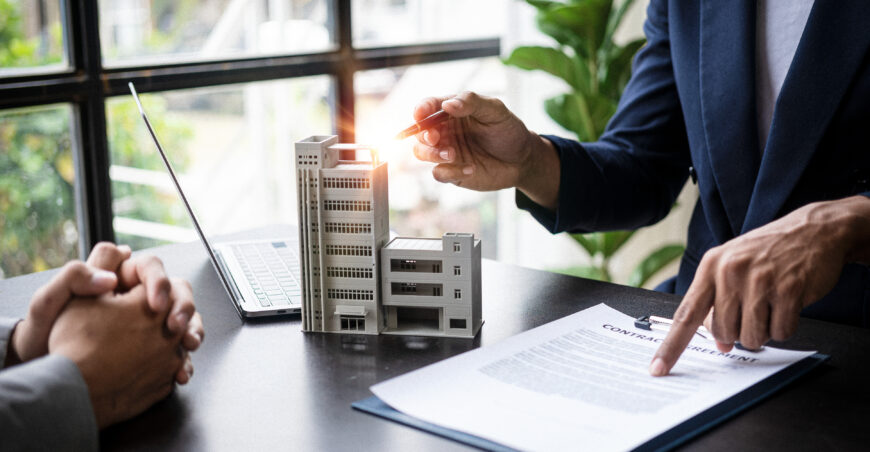Investing in the commercial real estate market can be exciting because of its promising substantial returns and the chance to expand your investment portfolio. Although the stakes are high on investing, the potential returns are also commendable and worthy. Whether you are a veteran investor or new to the game looking to up your investment portfolio, scrutiny and awareness of several critical factors must always be established. This article will guide you through the essential considerations and the general information that you need to spot the best investment opportunities and make well-informed choices.
The Importance of Location
The success of your investment heavily depends on where it’s located. Location holds such importance in a commercial real estate investment portfolio. Consider the following:
- Accessibility and Visibility – How conveniently can people reach the property? A good property should have road connectivity, several public transportation options, and parking availability. Also, it is important that a property has high visibility to attract more business. Like for example, Arizona is not just known for its stunning landscape; it is also a thriving business hub with a lot to offer making it the best place for investment especially to commercial real estate.
- Local Market Conditions – Research into the local economy of the area. An area with good employment rates and a growing or thriving market can mean higher demand and potential for your property.
- Demographics – Always make sure that the area’s demographics align with the target market for the business that will occupy your property.4
“The importance of location extends beyond mere geographical coordinates. It encompasses demographic factors, market trends, infrastructure availability, neighborhood characteristics, and governmental policies.” – Crexi
Understand Property Types and their Condition
Commercial real estate properties come in various types, from retail to offices to industrial property and the property’s condition plays a significant role.
- Identify your investment goal – Select a property type that fits your investment goal; most importantly, weigh the different risk and return profiles.
- Physical condition – Assess the property’s current state, including its structure, roof, HVAC systems, plumbing, and electrical systems. While older buildings have their character and charm, they may require higher maintenance cost. It is important to evaluate the condition of the property, including the renovations and repairs.
- Legal Compliance – Ensure the building complies with current zoning laws, building codes, and regulations. This includes Americans with Disabilities Act (ADA) compliance and environmental assessments.
Financial Performance
Evaluating the financial status of a property is crucial to make sure that the property aligns with your return expectations.
- Income and expenses – Review current lease agreements, rental income, operating expenses, and any capital expenditure history. Understand the Net Operating Income (NOI), use the cap rate for assessing investment returns against other opportunities and consider future cash flows, considering possible rent increase and vacancy rates.
- Vacancy rates – Check the property’s historical vacancy rates compared to the area average. High vacancy rates could indicate issues with the property or location.
- Market rent analysis – It is helpful to compare the property’s rent roll with the current market rents. You need to know if there is room to increase rents or if the property is already above the market.
Tenant Mix and Lease Terms
The quality of tenants and the terms of their leases can significantly impact the income stability of your investment & investment portfolio.
- Quality of tenants – Look for tenants that are stable, creditworthy and have a stable business history.
- Lease duration – Longer leases can provide stability but have limited flexibility to adjust rents. Meanwhile, shorter leases offer flexibility to adjust rents to market rates.
- Diversification – A mix of tenants from different sectors can help you reduce the risk if one of the industry sector hits hard times.
Future Prospects
Always think long-term when it comes to property potential
- Development opportunities – Properties in or near an area where there is a future expansion and development could increase the property’s value over time.
- Market Trends – Stay informed about the trends affecting commercial real estate. It is also essential to look at the supply and demand for commercial spaces in the vicinity.
Due Diligence and Professional Advice
Never underestimate the value of due diligence and professional insights.
- Comprehensive due diligence – Ensure that the property has a clear title, review any restrictions, identify any environmental risks that could affect the property’s value or usability, and confirm that the property meets all relevant building codes and safety standards. Download your free due diligence checklist.
- Consulting with experts – Choosing the right commercial real estate broker can provide you with valuable advice and help you avoid potential drawbacks.
If you are interested in learning more about commercial real estate investment, feel free to reach out to us at ICRE Investment Team anytime. We’d be happy to help supply you with information on any relevant properties or markets, alongside any connections in lending, investing, brokerage service or consulting that you might need!
















